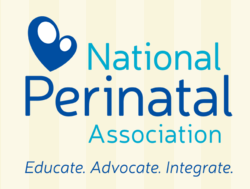Babies for Sale? Transnational Surrogacy, Human Rights and the Politics of Reproduction
Editor: Miranda Davies | Zed Books | March 2017
Buy at Amazon >
 From the publisher’s website:
From the publisher’s website:
Featuring contributions from over thirty activists and scholars from a range of countries and disciplines, this collection offers the first genuinely international study of transnational surrogacy. Its innovative bottom-up approach, rooted in feminist perspectives, gives due prominence to the voices of those most affected by the global surrogacy chain, namely the surrogate mothers, donors, prospective parents and the children themselves. Through case studies ranging from Israel to Mexico, the book outlines the forces that are driving the growth of transnational surrogacy, as well as its implications for feminism, human rights, motherhood and masculinity.
Our Bodies Ourselves is a contributor to the anthology, along with an impressive line up of experts in the field. (Read the table of contents.)
In a chapter titled “Frequently Unasked Questions: Understanding and Responding to Gaps in Public Knowledge of International Surrogacy Practices Worldwide,” Our Bodies Ourselves shares findings from an analysis of publicly-accessible information on international commercial surrogacy. This includes a random survey of news media articles and the websites of select international agents. The chapter also introduces readers to this information clearinghouse on the practice.
The Our Bodies Ourselves blog recently posted an article, authored by staff member Ayesha Chatterjee, on the contribution made by “Babies for Sale?” to literature on international commercial surrogacy.
For a special 40 percent discount, buy the book on the Zed website using the code “BABIESZED.” This offer is time limited and will end May 31, 2017.
 In this update from Cambodia, a number of Australian intended parents are now being allowed to leave the country with their children. To do so, they must prove a biological link to a child and obtain a gestational mother’s approval.
In this update from Cambodia, a number of Australian intended parents are now being allowed to leave the country with their children. To do so, they must prove a biological link to a child and obtain a gestational mother’s approval.
 Russia is considering a ban on surrogacy until a review of the existing law is complete. This article briefly explains the current status of the practice and the direction of future legislation – both of which are heavily influenced by the Russian Orthodox Church, a longstanding voice against all forms of surrogacy and public in its opinion of the practice as a threat to traditional marriage, childbearing, and family formation.
Russia is considering a ban on surrogacy until a review of the existing law is complete. This article briefly explains the current status of the practice and the direction of future legislation – both of which are heavily influenced by the Russian Orthodox Church, a longstanding voice against all forms of surrogacy and public in its opinion of the practice as a threat to traditional marriage, childbearing, and family formation.
 From the publisher’s website:
From the publisher’s website: I propose that we legalize altruistic gestational surrogacy — that is, procedures involving a third-party surrogate mother with no biological relation to the child, and who receives no financial compensation for taking on the role. To protect the interests of the surrogate mother, the intended parents, and the surrogate child, the government should establish clear rules specifying the qualifications for both the surrogate mother and intended parents, as well as the conditions for surrogacy, the restrictions on reimbursement, the privacy of those involved, and the child’s right to know of that it was born from the arrangement.
I propose that we legalize altruistic gestational surrogacy — that is, procedures involving a third-party surrogate mother with no biological relation to the child, and who receives no financial compensation for taking on the role. To protect the interests of the surrogate mother, the intended parents, and the surrogate child, the government should establish clear rules specifying the qualifications for both the surrogate mother and intended parents, as well as the conditions for surrogacy, the restrictions on reimbursement, the privacy of those involved, and the child’s right to know of that it was born from the arrangement.
 Professor Michele Goodwin at the University of Minnesota and Judy Norsigian have described the “raw and debilitating physical, emotional and spiritual challenges created by deeply personal and life-altering procedures” experienced by some women seeking ART and support the need for additional regulation. In addition to the invasive processes involved in conception, the ethical quandary created by a recommendation for fetal reduction and the emotional toll on women and couples may be profound and is incompletely studied. Professor Goodwin asserts there is a “much needed public discourse that could also become the clarion call for regulation of a field of medicine that has thus far unsuccessfully regulated itself.”
Professor Michele Goodwin at the University of Minnesota and Judy Norsigian have described the “raw and debilitating physical, emotional and spiritual challenges created by deeply personal and life-altering procedures” experienced by some women seeking ART and support the need for additional regulation. In addition to the invasive processes involved in conception, the ethical quandary created by a recommendation for fetal reduction and the emotional toll on women and couples may be profound and is incompletely studied. Professor Goodwin asserts there is a “much needed public discourse that could also become the clarion call for regulation of a field of medicine that has thus far unsuccessfully regulated itself.”